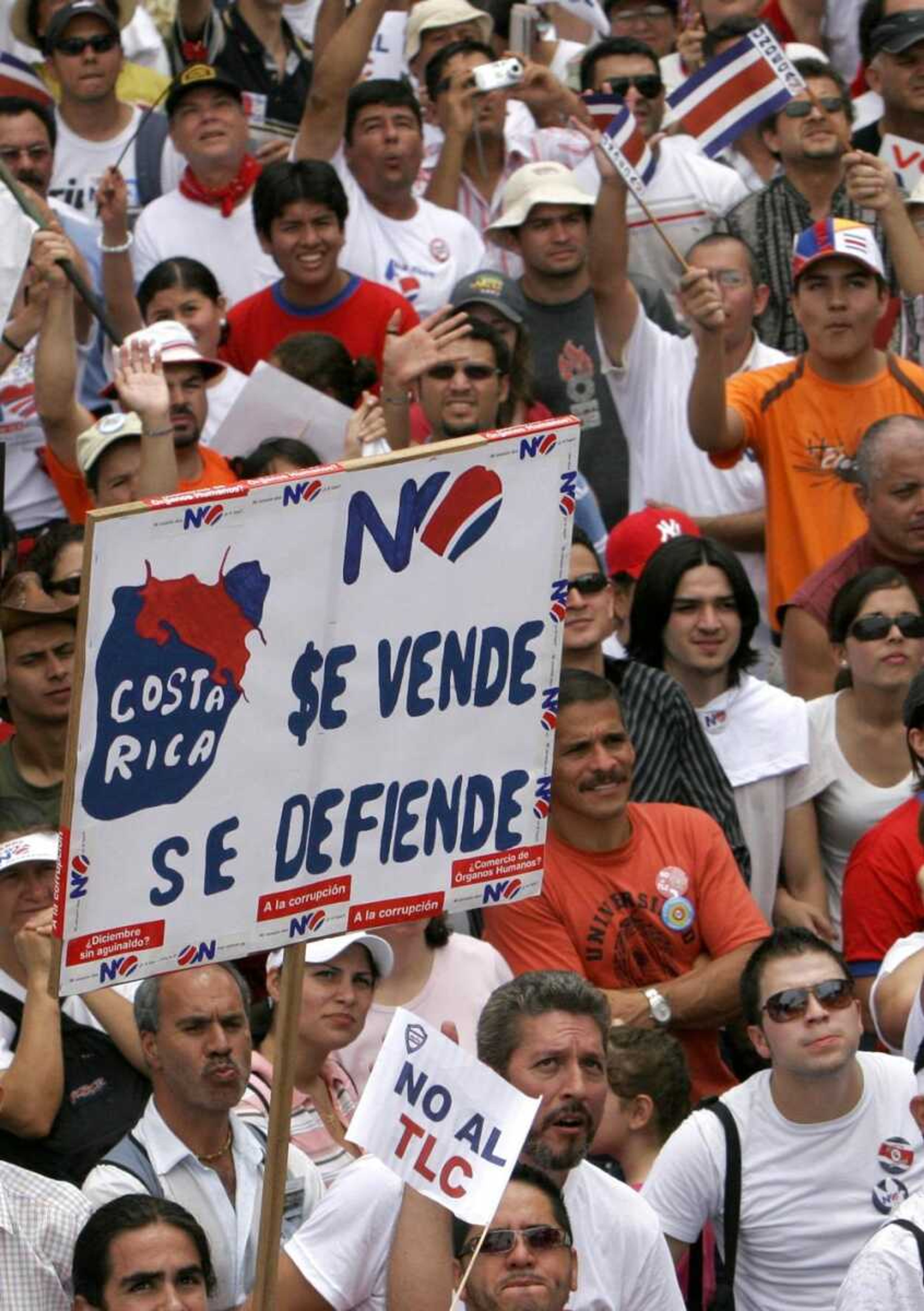Costa Rica votes on free trade deal
SAN JOSE, Costa Rica -- Costa Ricans were sharply divided over Sunday's referendum on a free-trade pact with the United States -- a measure supporters say is key to national prosperity, but critics fear could hurt farmers and small businesses. Costa Rica is the only one of the six Latin American signatories to the trade deal, known as CAFTA, that has yet to ratify it. The pact is in effect in the Dominican Republic, Guatemala, Honduras, Nicaragua and El Salvador...
SAN JOSE, Costa Rica -- Costa Ricans were sharply divided over Sunday's referendum on a free-trade pact with the United States -- a measure supporters say is key to national prosperity, but critics fear could hurt farmers and small businesses.
Costa Rica is the only one of the six Latin American signatories to the trade deal, known as CAFTA, that has yet to ratify it. The pact is in effect in the Dominican Republic, Guatemala, Honduras, Nicaragua and El Salvador.
With polls showing Costa Rica is poised to be the first country to reject the U.S.-Central American free trade agreement, U.S. officials and Costa Rica's president appealed for voters to back the deal.
On Saturday, the White House said if Costa Ricans vote against joining the agreement, the Bush administration will not renegotiate the deal and it urged people to recognize the treaty's benefits.
The pact would "expand Costa Rica's access to the U.S. market, safeguard that access under international law, attract U.S. and other investment and link Costa Rica to some of the most dynamic economies of our hemisphere," White House press secretary Dana Perino said in a statement.
U.S. officials also suggested they may not extend trade preferences now afforded to Costa Rican products and set to expire next September.
President Oscar Arias said a 'no' vote would affect industries in this Central American nation of 4.5 million people, and called it an "important tool for generating wealth in the country."
Arias, who won a Nobel Peace Prize for helping end Central America's civil wars in the 1980s, also said rejecting the pact would threatened trade benefits that help Costa Rica's textile and tuna industries.
But critics of the pact object to its requirements that Costa Rica open its telecommunications, services and agricultural sectors to greater competition. They also fear it will mean a flood of cheap U.S. farm imports.
When Arias arrived at a polling station to vote, opponents of the pact almost prevent him from entering and yelled "Arias traitor!" Others shouted in support of the pact.
Groups of demonstrators for and against the agreement marched Sunday in the capital, San Jose.
Pablo Chacon, a 63-year-old former truck driver, said he planned to vote 'yes' because that would mean more opportunities for his children.
"I have children who are studying and one even works for Intel, and if they took it away, what would my children do?" he said.
A poll published Thursday by the firm Unimer found that 55 percent of those questioned said they opposed the agreement, while 43 percent supported it, the newspaper La Nacion reported. The poll had a margin of error of 3.5 percentage points, and questioned 1,202 people between Sept. 27 and Oct. 2. Earlier polls have also predicted defeat.
Despite its conflicts over trade, Costa Rica fares better than other Central American countries: It has a thriving eco-tourism industry, maintains relatively high-paying jobs and is a magnet for Salvadoran and Nicaraguan migrants.
Costa Rica exported $3.37 billion in goods to the United States last year and imported goods worth $4.57 billion, according to Costa Rica's trade ministry.
Connect with the Southeast Missourian Newsroom:
For corrections to this story or other insights for the editor, click here. To submit a letter to the editor, click here. To learn about the Southeast Missourian’s AI Policy, click here.










